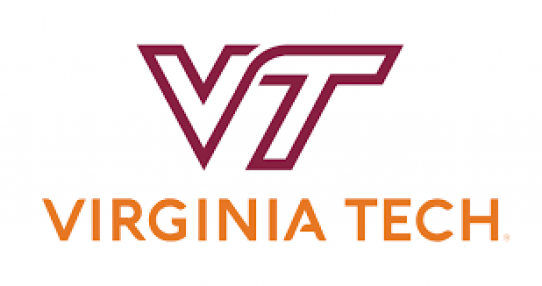Biomedical initiatives are boosted by strong public support, survey finds

Read the full article from Virginia Tech.
Virginia residents want the commonwealth to be a leader in education and biomedical research — and they are willing to pay for it.
In a statewide survey of more than 1,000 people released last week, residents support investing taxpayer funds to incentivize innovation, attract and support biotech start-ups, and fund biomedical and health science research.
What’s more, top concerns for Virginians are mental health, opioid addiction, the cost of health care, and children’s health. Support is strong for research and education to address these issues and drive progress.
“Virginians want the commonwealth to be a leader in all these endeavors,” said Mary Woolley, Research!America’s president and CEO, who last week released results of a survey that captured Virginians’ views on the economic impact of biomedical research and opinions on other public health and science issues.
Woolley’s presentation headlined a meeting of more than 100 statewide leaders in biotechnology, government, health care, and education at the Fralin Biomedical Research Institute at VTC in Roanoke.
The event recognized the state’s growing enterprise in biomedical research and addressed key opportunities to advance health outcomes and biotechnology in Virginia.
“The very high level of public support for research and innovation, STEM education, and the infrastructures that support them is a mandate for officials to take action,” Woolley said. “It’s a mandate for citizens to demand more — for them to say we want to be a leader and we will support getting there.”
In March and April, 1,003 adults in Virginia participated in the survey conducted by Zogby Analytics and commissioned by Research!America in partnership with Virginia Tech.
“Top of the mind issues are the cost of health care and mental health issues, which moved up nationally as well as here in Virginia,” Woolley said. “If you look at the toll that mental disorders are taking and combine that with substance abuse, opioid abuse, and drug abuse, the costs are astronomical.”
For 30 years, Woolley has led Research!America surveys and has seen public concerns change. In the 1980s, for example, HIV/AIDs grew into a top concern and remained so for a decade.
But there have been constants. Education is always the first among residents’ priorities for leadership.
“This is true across the country. In every state, education comes out No. 1,” Woolley said. “And it makes sense. Along with research, education is the driver for every success in the future and every one of the sectors Virginians support, as well — defense, agriculture, and all those cited. Education and research leadership go together. It’s about keeping smart young people right here in the commonwealth, not letting them get away.”
Another belief that remains unchanging is the opinion that biomedical research is worthwhile.
“I’ve never seen any public opinion survey in any state that says that research at universities is not valued,” Woolley said. “Virginians want leadership in fields that you are engaged in. Your work is helping find answers to the things that are top of mind for them.”
Virginia Tech President Tim Sands highlighted the university’s long-standing strengths in engineering and life sciences research alongside its rapid gains in biomedical research.
“We are now the third-most-recognized biomedical research university in Virginia,” Sands said. “The top two have a 100-year head start, but we’re on the move and going to catch up fast,”
Fralin Biomedical Research Institute at VTC executive director and Virginia Tech’s vice president for Health Sciences and Technology Michael Friedlander said insights from the survey ensure scientific investments align with taxpayer expectations.
“It is important for all of us who carry out research to be good stewards of public resources in the service of the public good,” said Friedlander, who led the Research!America event for Virginia Tech. “It’s essential that we periodically take stock of the public’s awareness, opinions, and concerns.”
Friedlander said Virginia Tech is well-positioned to respond to the top health concerns represented in the survey. The Fralin Biomedical Research Institute, for example, has made pivotal investments in mental health, children’s health, and addiction recovery research programs since it opened in 2010, in addition to its growing strengths in heart and cancer research.
Fralin, a health care executive who in 2018 finalized a $50 million gift to Virginia Tech to support biomedical research, affirmed the research institute’s “phenomenal progress” and mounting international reputation during a fireside chat.
“I fully believe that we are just at the tip of the iceberg,” said Fralin, who said he began supporting quality research in an academic health center setting as a means to advance opportunity and quality of life for people of Virginia.
Today, the institute supports 37 research teams, employs more than 400 people, and has an annual research portfolio currently valued at $180 million.
Carilion Clinic’s President and CEO Nancy Agee echoed Fralin’s comments about the Roanoke region’s metamorphosis into an innovation hub over the past decade.
“If the railroad was our past, research is undoubtedly our future,” Agee said. She also commented on Carilion’s growth in clinical trials research, which has quadrupled in size over the past two years.
The event presented an opportunity for research and technology leaders to talk about partnerships across Virginia and in the greater Washington, D.C., area.
Panelist including Sally Allain, regional head of JLABS @ Washington, DC; Karen Johnston, associate vice president for clinical and translational research at the University of Virginia; John Newby, CEO of Virginia Biotechnology Association; Kurt Newman, president and CEO of Children’s National Hospital; and Dan Sui, senior vice president for Research and Innovation at Virginia Tech, talked about leveraging relationships to get the very best results to benefit people’s health and the economy.




